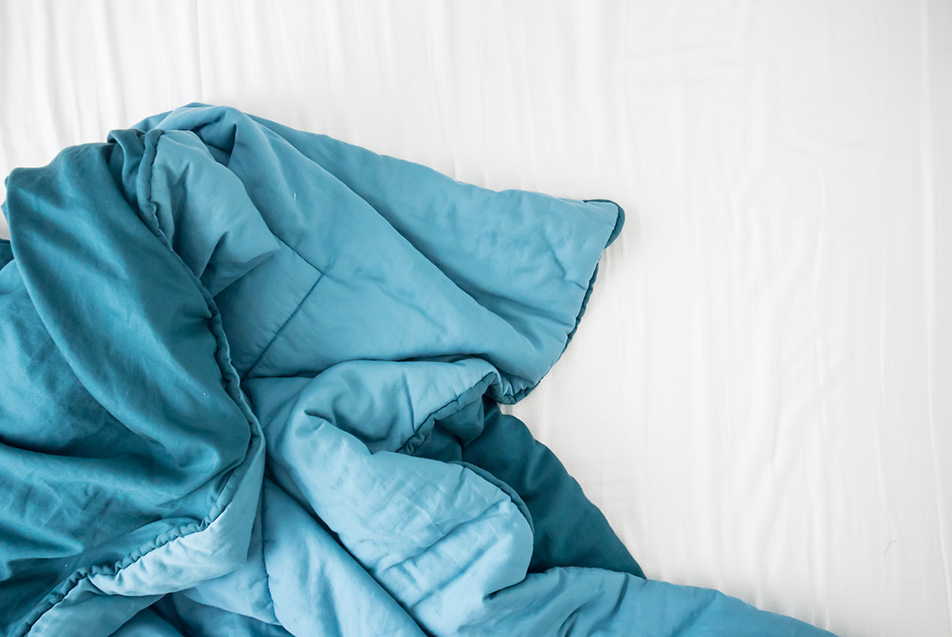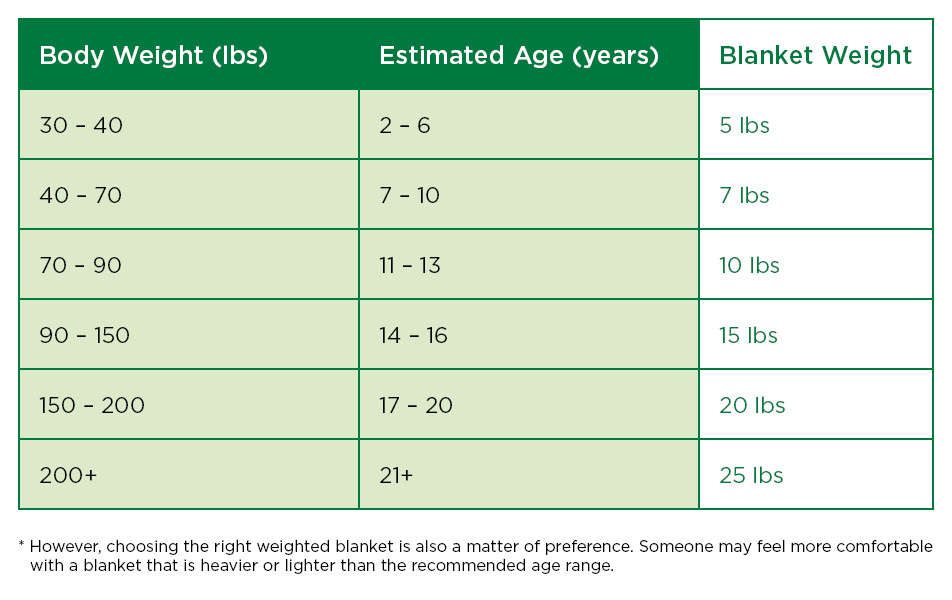
With the Christmas season in full swing, many are still struggling to find that perfect gift for their loved ones. While this time of year should bring joy and happiness, it has a tendency to also bring on stress and sleepless nights. Consider giving the gift of a good night’s sleep or this year’s trendy new option, the increasingly popular weighted blanket. Aaron Roberts, MD, PPG – Sleep Medicine, examines the science behind this buzzworthy product.
What it is
A weighted blanket is just what it sounds like; It’s a blanket filled with microbeads, pellets or balls that have been embedded to give it a certain amount of heaviness. They come in a variety of weights, ranging from 5-30 lbs, and are meant to give a comforting feeling (like a big hug) when it is time to go to bed. The concept has been around for decades, but has really grown in popularity over the past few years.
Today they are publicized and utilized in a variety of fields ranging from occupational therapy to mental health therapy. There are even weighted vests for man’s best friend. The question remains though: Do these things actually work or are they just another passing fad? Let’s take a closer look at whether or not weighted blankets can aid in sleep disorders.
How it works
The weight of the blanket provides a deep touch therapy, delivering a firm, deep pressure that activates pressure receptors located throughout the body. When these receptors are stimulated, the body relaxes and feels grounded and safe. Just imagine how relaxed you feel when receiving a massage. Now imagine experiencing a light massage throughout the entire night while you sleep. It has also been proven in past research that when deep pressure points are triggered, it causes the brain to increase serotonin production. This increase in serotonin not only lifts a person’s mood, it gets naturally converted to the sleep-promoting hormone melatonin, which will prompt the body to rest.
The research
Overall, there is not a lot of research regarding the effects of weighted blankets on sleep quality, and much of what is presented by retailers is anecdotal. Perhaps one of the more well-known studies is from the Journal of Sleep Medicine and Disorders, done in 2015. This study looked at 31 individuals with chronic insomnia who underwent both subjective and objective measures of their sleep with normal bedding and then compared results when using a weighted blanket.
Subjectively, 84 percent of participants said they liked their weighted blanket and reported better sleep and less fatigue during the day. Objectively, results from their sleep studies and actigraphy showed a statistically significant improvement in sleep quality. The small sample size must be taken in to consideration though and larger randomized controlled studies would need to be done to affirm results.
Weighted blankets were also studied in children ages 5-16 with autism spectrum disorder and severe sleep problems. This study had a total of 73 individuals and compared a weighted blanket to an identical blanket without the extra weight. Results revealed that the weighted blankets did not improve sleep overall, however they were still preferred by the children and their parents.
Choosing a blanket
There are some things to consider when purchasing a weighted blanket. It should be around 8-12 percent of your body weight, be evenly displaced across your body, should not increase the temperature of the bedding, the fabric should dissipate heat easily and it should cover your body just from your chin to past your toes.

Keep in mind, there are also smaller sizes available for younger children. Price range varies, depending on the retailer but can climb to well over $100. It is recommended that you do not use them if you suffer from a respiratory, circulatory, or temperature regulation problem or if you are recuperating post-surgery. As always, consult your primary care physician if you have any questions or concerns.
The takeaways
Although the verdict remains out on whether or not weighted blankets are an effective treatment modality for insomnia, the preference for them is evident. Even though there are not a lot of studies showing direct improvement in sleep quality and quantity, weighted blankets may improve anxiety and indirectly aid in sleep. Whether there is a physical response, or more of an emotional comfort, there does appear to be some weight to the effectiveness of weighted blankets.



